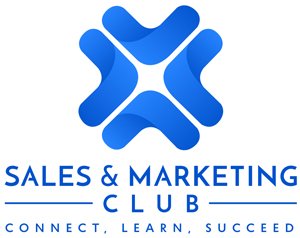In a dynamic world continuously evolving in both spheres – technology and business, it’s simply not enough to rely on traditional education. Today, a wave of unconventional certifications is reshaping professional landscapes, offering individuals opportunities to gain specialized skills, enhance their career prospects, and unlock new paths to success.
This blog post will delve into five unconventional certifications that are reshaping professional landscapes, shedding light on the advantages of each course and who would benefit from them.
1. Certified Ethical Hacker (CEH)
In an era where cybersecurity threats are rampant, knowing how to secure a system is as critical as being able to break into one ethically to identify vulnerabilities. The Certified Ethical Hacker certification is a unique course that promises to teach exactly that – ethical hacking.
Administered by the EC-Council, the CEH certification equips professionals with knowledge and skills to think and act like a hacker, with the crucial difference that their actions are lawful and meant to improve system security. Certified ethical hackers are predominantly employed by businesses looking to secure their systems.
Who Should Consider This?
Individuals interested in cybersecurity, current IT professionals looking to diversify their skill set or make a move towards cybersecurity roles could consider this certification.
2. LEGO Serious Play Facilitator Certification
At first glance, you might wonder how LEGOs play a role in the professional landscape. However, this certification extends beyond child’s play. It’s grounded in the belief that innovative solutions can emerge when people are empowered to convey their thoughts creatively.
The LEGO Serious Play (LSP) is an experiential process designed to stimulate innovation and improve business performance. The LSP facilitators are trained to guide groups through problem-solving, team-building, and strategic planning by engaging participants in LEGO-based activities.
Who Should Consider This?
Those interested in facilitation, innovation, team building, training, and similar fields or who already work in a creative, educational, or consultative role could benefit from an LSP certification.
3. Social Media Marketing Certifications
The realm of marketing has been revamped with the advent of social media. Moreover, an increasing number of businesses are witnessing the power of social media marketing – prompting a surge in demand for professionals adept in this field. Several online platforms offer comprehensive certification courses now.
Probably the most reputed one is Hootsuite’s Social Marketing Certification. It trains individuals in core strategies for building and managing an effective social media marketing strategy. Another example is HubSpot’s Social Media Certification course, which imparts training on everything from social strategy and social listening to the amplification of social content.
Who Should Consider This?
This course would be beneficial to marketers, business owners, entrepreneurs, or job seekers interested in pursuing a career in the dynamic world of social media marketing.
4. Professional Tea Sommelier Certification
Fancy a cup of tea? How about turning your passion for tea into a lucrative and fulfilling profession? Just like a wine sommelier, a certified Tea Sommelier is a trained and knowledgeable tea professional who has successfully completed the eight modules in the Tea Sommelier course offered by organizations such as the Tea and Herbal Association of Canada or the U.K. Tea Academy.
Graduates of the program have an in-depth understanding of tea varieties, production processes, history, health benefits, and tasting techniques.
Who Should Consider This?
This program suits tea enthusiasts, professionals in the food and beverage industry, or anyone who’d like to build a career in this niche but stimulating domain.
5. Scrum Certifications
Scrum emerged as a revolutionary approach towards project management in the era of Agile development. Various Scrum certifications can enhance your understanding of the Scrum framework and your ability to apply it effectively in your projects.
Popular Scrum certifications include Certified ScrumMaster (CSM), offered by Scrum Alliance, and Professional Scrum Master (PSM), provided by Scrum.org. These courses cover the principles and theory of the Scrum framework and the role of the Scrum Master in it.
Who Should Consider This?
Scrum certifications are beneficial for professionals involved in product development, project management, and software development, particularly those working in or transitioning to organizations using Agile methodologies.
Conclusion: Unlocking New Pathways to Success
While conventional degrees and certifications will always have their value, the rise of these unconventional certifications signifies a shift in the professional world – an inclination towards skills that cater to the demands of industries reshaped by technology, innovation, and changing consumer behaviours.
Whether it’s ethical hacking or Scrum, social media marketing or facilitating innovative thinking with LEGO, each of these certifications represents a deep dive into specialized areas of knowledge. These aren’t just opportunities to enhance your CV; they’re gateways to new career paths, opportunities, and success.
While it’s important to find a certification that aligns with your career goals, remember that the real value of any certification lies in its practical application. It’s not just about acquiring knowledge but applying it to deliver value.
In the end, the shifting professional landscapes demand continuous learning, upskilling, and reskilling for individuals. Embrace this shift, and you might discover new horizons, unlock unforeseen opportunities, and chart paths to success that you never imagined. Here’s to untraditional learning and unimagined success!


















